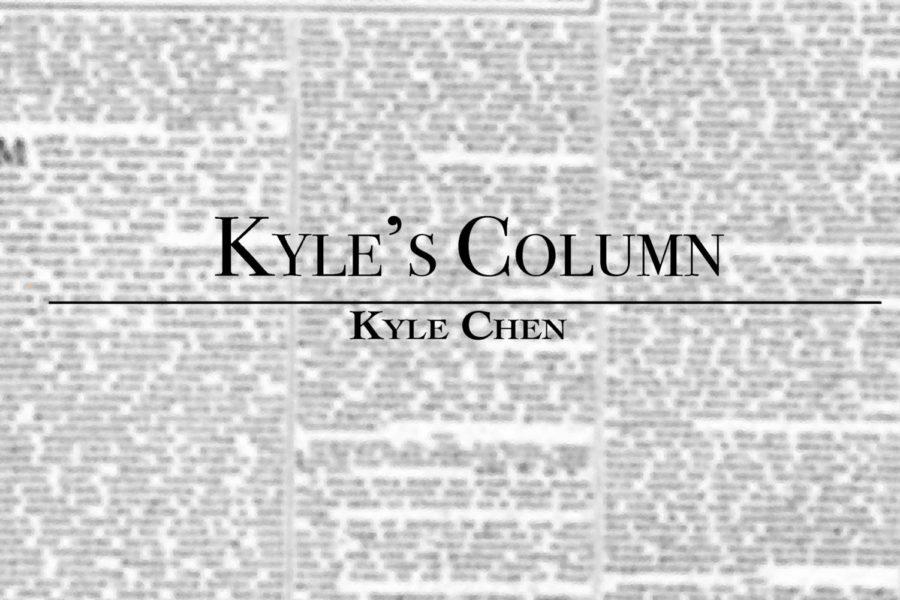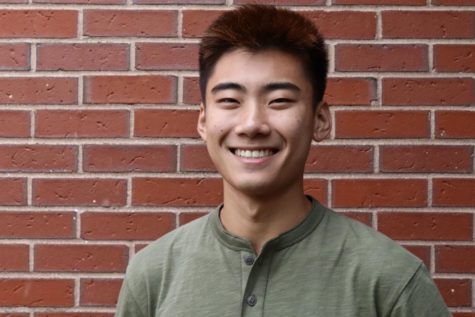Kyle’s Column: An Asian-American student’s path to an elite college
In the latest installment of Kyle’s Column, WSPN’s Opinions Editor Kyle Chen reflects upon the lessons that come with having a cold.
December 5, 2017
I was scrolling through my inbox the other day when I encountered an email from a college searching website called Cappex. The message urged me to create an account and find the right college for my future. Since I figured it was never too early to start this kind of thing, I clicked on the link in the email and created an account. It wasn’t too complicated – I just put in my basic information, added some hypothetical standardized test scores and–albeit generously–guesstimated my GPA at the end of my four years in high school. Then, the site took me to a page where I selected a few of my ideal colleges and the site showed me my chances of getting in.
At first, I was pretty surprised to see good results–the blue range on the meter, which shows your chances of admission, bordered on the right side of the scale. According to the results shown, I had a pretty good chance, something like 70-80%, of getting into Columbia, one of the colleges I put on my list.
But then, the website asked a couple more questions “to get a more complete sense of you,” it assured. I answered all the questions without much thought and returned to my profile. It came as sort of a nasty surprise when I saw my chances of getting into nearly all of the colleges on my list had gone down drastically. My chances of admittance to Columbia, in particular, had gone down to 30-50%. Hastily, I clicked back to the question page, and I reread the questions carefully. Scrolling down, I found the culprit at the end of the survey: “Please select your ethnicity from the choices below.”
My sudden drop in chances was purely based on the fact that I had checked off the small circle labeled “Asian.” I could be a straight-A student (hopefully), play an instrument, and be on varsity sports teams at my school, but just because of my ethnicity, my chances would go down nearly 50%.
Is this fair? Obviously not. But it’s the unfortunate truth. Asian students nowadays are known for academic excellence. And it’s hard to find one that doesn’t play an instrument or do some kind of sport for his or her extracurricular as well. Of course it may not be fair, but there’s a reason why Asian-American students like me have a harder path to an elite college than most. Statistically speaking, there are just too many good Asian kids–which means many of us, no matter how good we are, will not make it.
This issue has not gone unnoticed; the ongoing debate about affirmative action has led to a lawsuit filed by an organization against Harvard for discrimination against Asian-Americans.
However, I don’t think the case will succeed. Statistics show that Harvard, and many other elite colleges around the world, have student bodies with an already disproportionate amount of Asian-American students (the Harvard class of 2021 is 23.1% Asian) compared to the amount of Asian Americans in the United States (5.6% as of 2010), and if these colleges allowed more Asian American students, the ratio would be way out of whack.
Basically, the way the system is right now, there is no way that my chances applying for a college like Harvard could be the same as some other kid who is not Asian with the exact same grades, the exact same extracurricular achievements, and the exact same personality as me. Even though it is unfair, it is just the way it is.
But until change does come, there is no point despairing. All we can do for now is just to put our best effort into everything, to work harder than anyone else, and to seize the opportunities we are given.
And who knows? Maybe one day a solution will appear. But until then, to all of my fellow Asian-American students, I only have one thing to say: we can always hope.
Opinion articles written by staff members represent their personal views. The opinions expressed do not necessarily represent WSPN as a publication.





![Last Wednesday, the Wayland School Committee gathered to discuss a number of topics regarding the health curriculum and Innovation Career Pathway course. Another large topic of conversation was the ways to potentially mitigate distracting cell phone usage. "These [phones] are going to distract your learning and social relationships," Superintendent David Fleishman said. "That's concrete right there."](https://waylandstudentpress.com/wp-content/uploads/2025/06/Screenshot-2025-06-04-at-9.49.31 PM-1200x886.png)



























![Troy Hoyt finishes the Boston Marathon, running for the Hoyt Foundation. T. Hoyt is the son of Hoyt Foundation CEO Russ Hoyt.
“[Running a marathon] might seem like a big thing, when it’s presented to you at first, but if you break it up and just keep telling yourself, “Yes, you can,” you can start chipping away at it. And before you know it, you’ll be running the whole 26 miles, and you won’t even think twice about it.” T. Hoyt said.](https://waylandstudentpress.com/wp-content/uploads/2025/04/C36E8761-1CBB-452E-9DF2-543EF7B1095E_1_105_c.jpeg)














































Student • Dec 5, 2017 at 10:50 PM
Really well written-
You gotta write some banging essays Kchenni-
Good luck, your outlook is realistic and fails to be exceedingly opto or pess.